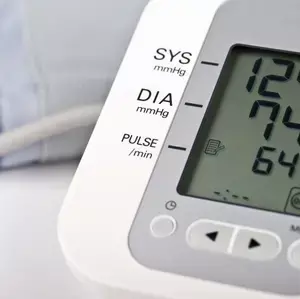- Home
- Medical news & Guidelines
- Anesthesiology
- Cardiology and CTVS
- Critical Care
- Dentistry
- Dermatology
- Diabetes and Endocrinology
- ENT
- Gastroenterology
- Medicine
- Nephrology
- Neurology
- Obstretics-Gynaecology
- Oncology
- Ophthalmology
- Orthopaedics
- Pediatrics-Neonatology
- Psychiatry
- Pulmonology
- Radiology
- Surgery
- Urology
- Laboratory Medicine
- Diet
- Nursing
- Paramedical
- Physiotherapy
- Health news
- Fact Check
- Bone Health Fact Check
- Brain Health Fact Check
- Cancer Related Fact Check
- Child Care Fact Check
- Dental and oral health fact check
- Diabetes and metabolic health fact check
- Diet and Nutrition Fact Check
- Eye and ENT Care Fact Check
- Fitness fact check
- Gut health fact check
- Heart health fact check
- Kidney health fact check
- Medical education fact check
- Men's health fact check
- Respiratory fact check
- Skin and hair care fact check
- Vaccine and Immunization fact check
- Women's health fact check
- AYUSH
- State News
- Andaman and Nicobar Islands
- Andhra Pradesh
- Arunachal Pradesh
- Assam
- Bihar
- Chandigarh
- Chattisgarh
- Dadra and Nagar Haveli
- Daman and Diu
- Delhi
- Goa
- Gujarat
- Haryana
- Himachal Pradesh
- Jammu & Kashmir
- Jharkhand
- Karnataka
- Kerala
- Ladakh
- Lakshadweep
- Madhya Pradesh
- Maharashtra
- Manipur
- Meghalaya
- Mizoram
- Nagaland
- Odisha
- Puducherry
- Punjab
- Rajasthan
- Sikkim
- Tamil Nadu
- Telangana
- Tripura
- Uttar Pradesh
- Uttrakhand
- West Bengal
- Medical Education
- Industry
Wild Olive Oil reduces BP and prevents retinal damage: Study

Among the health benefits of extra virgin olive oil, antioxidant, antitumoral and anti-inflammatory properties have been attributed to different components.Currently, very little is known about the chemical composition and/or therapeutic effects of the cultivated olive tree's counterpart, wild olive
Cardiovascular Physiopathology research group at the Physiology Department of the University of Seville has found in a new study that an acebuchin-oil-enriched diet helps to reduce arterial blood pressure . Furthermore, their work shows that acebuche oil has a greater impact in reducing hypertension than extra virgin olive oil.
This research group from the US Faculty of Pharmacy, led by Professor Carmen María Vázquez Cueto together with Professor Alfonso Mate Barrero, has been investigating the physiopathological mechanisms involved in the development of arterial hypertension (AHT) for over 20 years, with special interest in finding natural products that help to alleviate the organ damage caused by this disorder. The acebuche, also know as the wild olive tree, is a variety of tree widely found throughout Spain and covering almost nine million hectares in Andalusia. However, little data is available on the composition and therapeutic potential of acebuchin oil. The studies mainly focus on the composition and pharmacological effects of olive tree leaves and extra virgin olive oil.
Following their research, in which they gave mice a diet enriched with acebuchin oil or extra virgin olive oil, the researchers detected that the acebuchin-oil-enriched diet significantly reduced blood pressure in hypertensive animals. However, a lesser antihypertensive effect was found in animals fed a diet enriched with extra virgin olive oil.
At the same time, the study showed that the diet enriched in acebuchin oil reduces ocular oxidative stress produced by AHT to a greater degree than the diet enriched in extra virgin olive oil. Furthermore, the former also has a greater impact in regulating the systems related with this oxidative stress.
In particular, the researchers studied variations in the morphology of the hypertensive retina, which are prevented by the acebuched-oil-enriched diet. AHT causes a change in the retina's morphology (showing "thinned" layers in the retina). This outcome can be counteracted with an acebuchin-oil-enriched diet, obtaining better results than with a diet enriched in extra virgin olive oil.
AHT is a high-prevalence disease on a global scale (30-45% of the general population) where systolic blood pressure values rise above 139 mmHg and/or diastolic blood pressure is above 89 mmHg. AHT damage manifests itself in different organs and is a major risk factor in cardiovascular, kidney, brain and eye diseases. In particular, AHT constitutes an important risk factor for the development of retinal vascular diseases, such as hypertensive retinopathy and retinal arterial and venous obstructions, which are associated with high-prevalence ocular pathologies such as cataracts, glaucoma, age-related macular degeneration and choroidopathies.
ThebCardiovascular Physiopathology research group has applied to the Spanish Patent and Trademark Office (OEPM), through the University of Seville, for a patent on the "Use of acebuchin oil in retinal damage associated with arterial hypertension and associated retinal pathologies".
For further reference log on to:
Dr Kamal Kant Kohli-MBBS, DTCD- a chest specialist with more than 30 years of practice and a flair for writing clinical articles, Dr Kamal Kant Kohli joined Medical Dialogues as a Chief Editor of Medical News. Besides writing articles, as an editor, he proofreads and verifies all the medical content published on Medical Dialogues including those coming from journals, studies,medical conferences,guidelines etc. Email: drkohli@medicaldialogues.in. Contact no. 011-43720751


